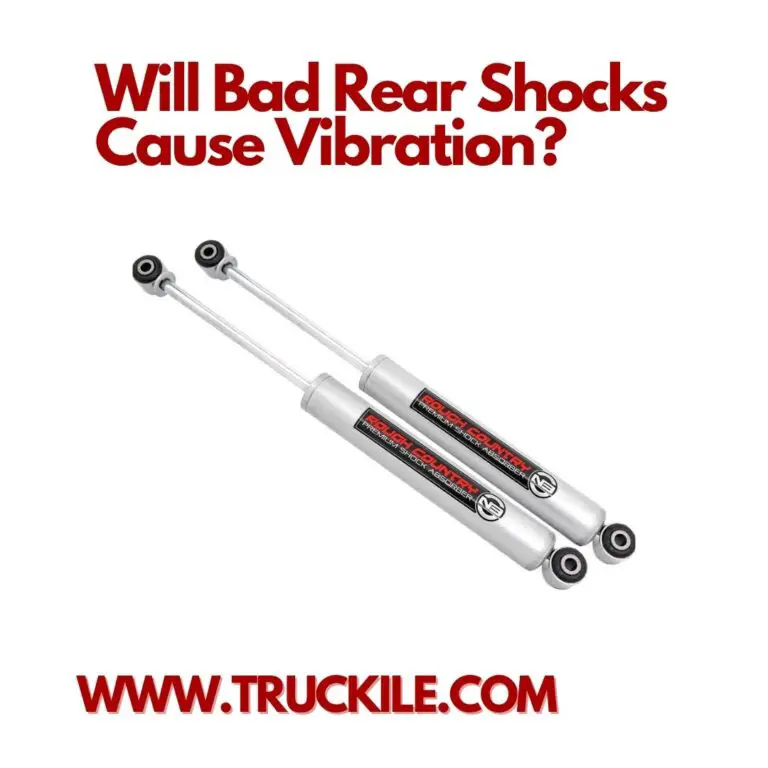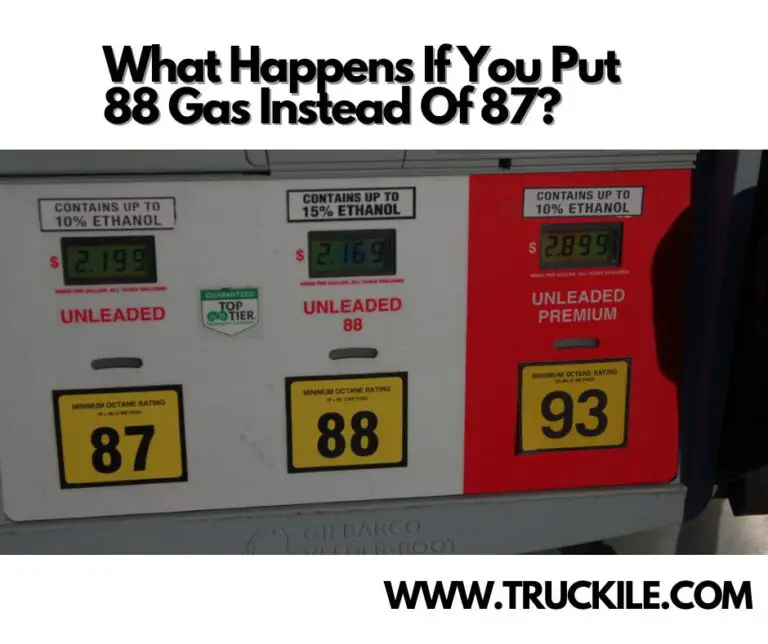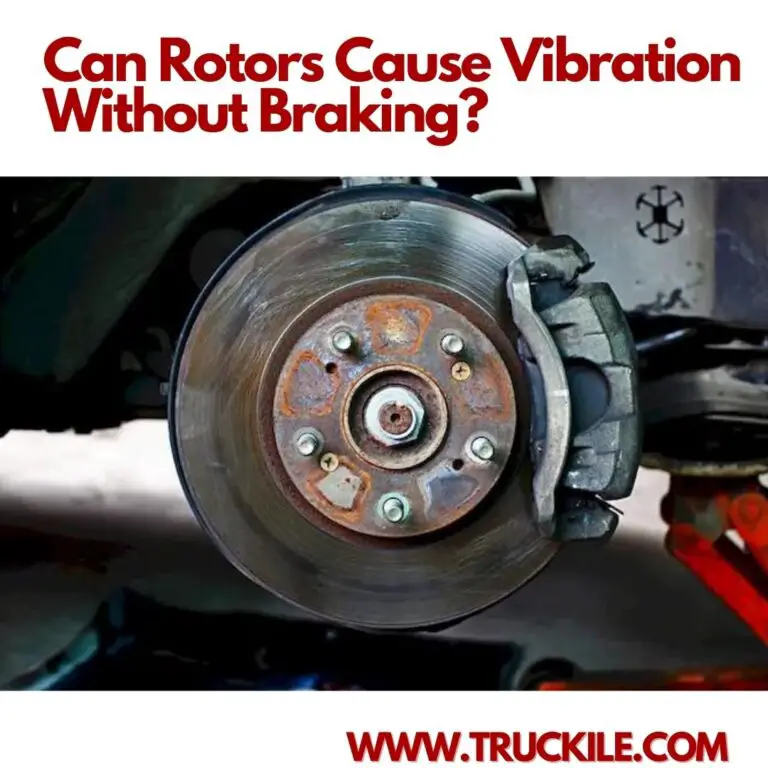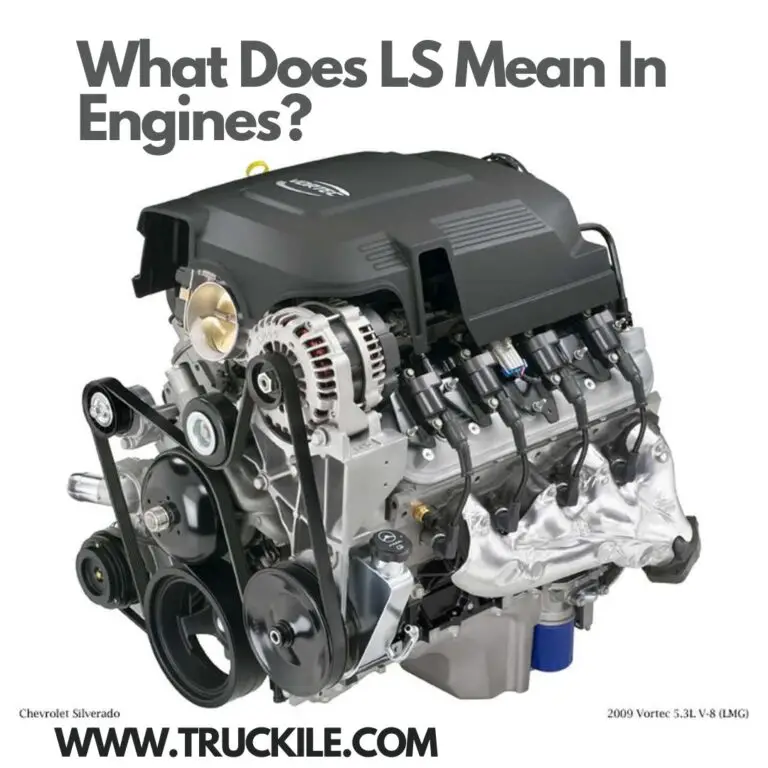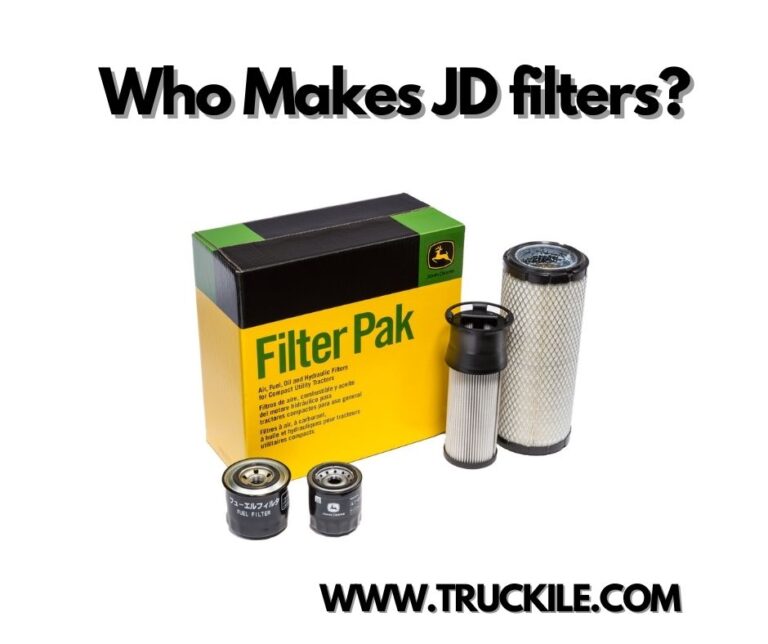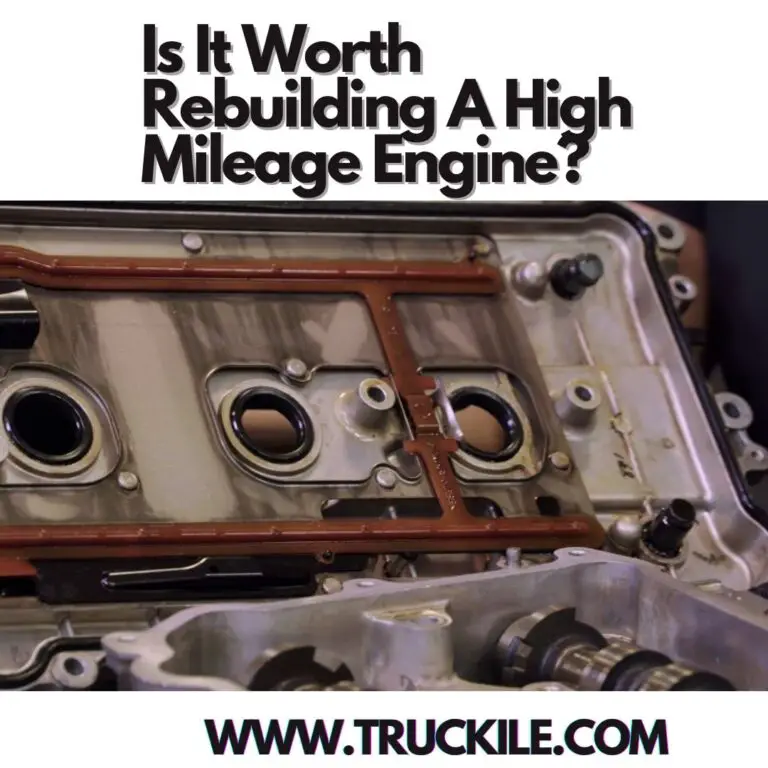Does V6 Last Longer Than V8?
Choosing between V6 & V8 can be a bit tricky — because they have their unique features. It’s quite a personal decision for anyone to decide which, among V6 and V8, to go for. In this article, we’ll answer the question — Does V6 Last Longer Than V8? — state the difference between them, define internal combustion engine, and more.
Does V6 Last Longer Than V8?
If the truck is heavy and frequently is used to carry out several towing, the V8 will most likely outlast the V6. If the vehicle comes with a V8 for no single reason around work, going for the V6 would be ideal. With V6, you will get better mileage and it — also — provides less stress on the vehicle.
Before we delve into disclosing the difference between V8 and V6, let’s look at how really an internal combustion engine works.
What Is An Internal Combustion Engine?
We all have, in our heads, what a steam engine looks like — because we’ve seen it before. We know that the first thing you’ll be trying to do right now is to try to conjure up the image of a steam-powered locomotive. People were so much about these types of engines until the go-to source of power became the internal combustion engine. In 1859, the very first commercially successful internal combustion engine was brought into existence — it was created by a Belgian engineer, Étienne Lenoir.
In 1876, a man created something similar, this time one that ran on petroleum gas: the first internal combustion engine that worked with the aid of petroleum gas. The name of this man is Nikolaus Otto. To state further, this engine that ran on petroleum gas stood as the predecessor to the modern engines of today. Without diving into anything technical, it’s simply a thing of conversion of energy from spark ignition — speaking of the basic way this engine works.
An internal combustion engine comprises a fixed cylinder and a moving piston. From the combustion of the mixture of fuel and air, gasses are released. Such mixture pushes the piston and rotates the crankshaft. The wheels of the vehicle are put in motion through the movement of gears in the powertrain and a chain reaction.
What Does V6 Engine Mean?
Are you asking: “what does a V6 engine mean?” Then, here’s where we tell you more about a V6 engine. It’s simply an engine that comes with six cylinders — cylinders that are mounted on the crankshaft. As regards arrangement, you’d see the six cylinders, while mounted on the crankshaft, in two rows of three — and arranged in a V-shape. In 1905, these types of engines were first developed but they didn’t amass the desired popularity until it was the middle of the 20th century, the period race cars started using them.
Basically, when it’s kept together with an engine that possesses four cylinders, V6 engines give out more power, as a result of having more pistons to cause the conversion of more fuel into useable energy. Speaking of noise, V6 engines work in a quieter manner than a four-cylinder engine. Also, they consist of a rigid, compact design that requires quite a little space under the hood, and tend to have a better fuel economy way more than the V8.
V6 engines have reached a far height in terms of their popularity. They’re used in several drives — rear, front, and all-wheel drives. Compared to conventional engines, they — the V6 engines — offer much more power.
What Does V8 Mean?
Again, there are people asking, “what does v8 mean?” This is the section where we respond to that question. To explain to the best of your understanding, V8 engines possess eight cylinders mounted in two sets of four, compared to the number of cylinders in V6 — six. V8s provide acceleration and produce more power at a faster rate. The V8 engines, however, zap more fuel than what the V6 consumes, because of their additional number of cylinders. V8 engines offer high displacement, owing to their rigid design.
These types of engines are associated with high power, and also have reached the height of becoming the favorites for muscle cars. Unlike the adaptable and commonly used V6, most vehicles that come with the V8 engines are restricted to either AWD or RWD. As for weight, the V8s are much heavier than the V6, and due to heightened friction in the parts involved in motion, have a higher cost of maintenance.
What’s The Difference Between V6 And V8?
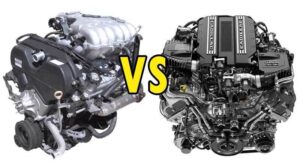 V6 Engines:
V6 Engines:
- They are generally cheaper than the V8 engines
- Can be mounted on most all-wheel, front-wheel and rear-wheel drives
- Have six cylinders
- In terms of design, they’re compact. And, they tend to run more quietly
- They provide both fuel efficiency and power
- If you want a truck with less friction and maintenance costs than the V8, this V6 engine is for you
- If you’re in need of an engine with high power output and fast acceleration, it’s not for you.
V8 Engines:
- They cost more than the V6
- They have eight cylinders
- They provide much more power than a V6, but consume more fuel
- They are rigid in design with higher displacement
- They are mostly found in AWD & RWD trucks
- They have high maintenance costs due to moving parts and increased friction
- The V8 engines are for you if you’re searching for straight power and don’t mind spending the extra cost
- If you drive occasionally in the city, this isn’t for you — as the consumption of fuel can be uneconomical.
Engine Types And What The ‘V’ In Engines Means
With the intention of suiting a variety of driving needs, automakers can create a pretty wide array of engine types. They can conduct the production by altering the size and number of the cylinders — including their relationship. Cylinder sizes will definitely vary from engine to engine, but — inside an individual engine — they’re all similar in size. The manner in which the cylinders are arranged inside an engine is how a V8 and V6 get their designation.
The cylinders’ opposing rows — the two opposing rows precisely — connect to each other, giving a V-like shape. Also, this configuration is pretty common when more cylinders need to be arranged in a compact space. When eight or six cylinders are arranged in the V pattern, it is designated as V8 or V6 respectively. So, if you own a model that possesses a V6, it means there are up to two rows of three cylinders right inside the engine. A V8 comes with two rows of four cylinders.
There are several similarities in the designs of V8 and V6. Firstly, these engines are known for their lightness, and secondly, they outdo other engine designs in terms of being compact.
Frequently Asked Questions (FAQs)
Is It Better To Have A V6 Or V8 Engine?
In comparison to a four-cylinder engine, the v6 engines run smoother and offer more power. Just so you know, V6 engines assure better handling and more stability than their V8 counterparts. Typically, V8 engines offer better acceleration and power.
Does A 6 Cylinder Engine Last Longer?
Given that all parts of a given type (ie all bearings, all pistons, etc) in an engine will most likely wear out at the same time, having more cylinders has very much no detrimental effect on engine life.
What’s Faster, V6 Or V8?
Simply explained, V8 engines have about eight cylinders mounted in two sets of four, compared to six cylinders in a V6. V8s smoothly produce more power and provide acceleration at a faster rate. However, due to the V8s additional cylinders, these engines consume more fuel than the V6.
Does V8 Waste More Gas?
The large V8 engines have the ability to speed up in a hurry, but when you drive with the engine wide open, it quickly blows through your gas.
Why The V8 Is The Best Engine?
The V8 cylinders tend to have more of an angle within the engine — perpendicular angle precisely. The V8 engines come with way more power which produces a higher power ceiling than a V6. For fulfilling worksite needs, you’d want to go for the V8 engines — because it can be more beneficial for that purpose.
How Many Miles Do V6 Engines Last?
A decent engine that is maintained as supposed could last for up to 250k miles, and even more. The same engine that’s not taken care of could last less than 100k miles.
Does V6 Last Longer Than V8 – Conclusion
As a recap of what we’ve said, the response we gave to the question — Does V6 Last Longer Than V8? — entails:
If the truck is heavy and frequently is used to carry out several towing, the V8 will most likely outlast the V6. If the vehicle comes with a V8 for no single reason around work, going for the V6 would be ideal. With V6, you will get better mileage and it — also — provides less stress on the vehicle.
This will help you make your decision as regards choosing between the V8 and the V6 for the best suit for your vehicle. If you’ve used any of these engines — V6 or V8 — share your experience with them in the comment section.
Thanks for reading.

Joe lives and breathes cars and trucks. After many years working in the Auto industry, he decided that it is only right to share his knowledge with the public. As a qualified expert in trucks and cars, he started working for Truckile.com and is the main editor and publisher.

